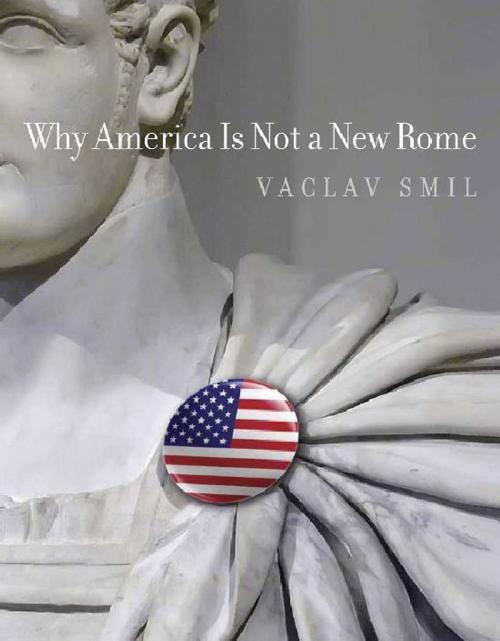| Author: | Vaclav Smil | ISBN: | 9780262288293 |
| Publisher: | The MIT Press | Publication: | January 29, 2010 |
| Imprint: | The MIT Press | Language: | English |
| Author: | Vaclav Smil |
| ISBN: | 9780262288293 |
| Publisher: | The MIT Press |
| Publication: | January 29, 2010 |
| Imprint: | The MIT Press |
| Language: | English |
An investigation of the America-Rome analogy that goes deeper than the facile comparisons made on talk shows and in glossy magazine articles.
America's post–Cold War strategic dominance and its pre-recession affluence inspired pundits to make celebratory comparisons to ancient Rome at its most powerful. Now, with America no longer perceived as invulnerable, engaged in protracted fighting in Iraq and Afghanistan, and suffering the worst economic downturn since the Great Depression, comparisons are to the bloated, decadent, ineffectual later Empire. In Why America Is Not a New Rome, Vaclav Smil looks at these comparisons in detail, going deeper than the facile analogy-making of talk shows and glossy magazine articles. He finds profound differences.
Smil, a scientist and a lifelong student of Roman history, focuses on several fundamental concerns: the very meaning of empire; the actual extent and nature of Roman and American power; the role of knowledge and innovation; and demographic and economic basics—population dynamics, illness, death, wealth, and misery. America is not a latter-day Rome, Smil finds, and we need to understand this in order to look ahead without the burden of counterproductive analogies. Superficial similarities do not imply long-term political, demographic, or economic outcomes identical to Rome's.
An investigation of the America-Rome analogy that goes deeper than the facile comparisons made on talk shows and in glossy magazine articles.
America's post–Cold War strategic dominance and its pre-recession affluence inspired pundits to make celebratory comparisons to ancient Rome at its most powerful. Now, with America no longer perceived as invulnerable, engaged in protracted fighting in Iraq and Afghanistan, and suffering the worst economic downturn since the Great Depression, comparisons are to the bloated, decadent, ineffectual later Empire. In Why America Is Not a New Rome, Vaclav Smil looks at these comparisons in detail, going deeper than the facile analogy-making of talk shows and glossy magazine articles. He finds profound differences.
Smil, a scientist and a lifelong student of Roman history, focuses on several fundamental concerns: the very meaning of empire; the actual extent and nature of Roman and American power; the role of knowledge and innovation; and demographic and economic basics—population dynamics, illness, death, wealth, and misery. America is not a latter-day Rome, Smil finds, and we need to understand this in order to look ahead without the burden of counterproductive analogies. Superficial similarities do not imply long-term political, demographic, or economic outcomes identical to Rome's.















